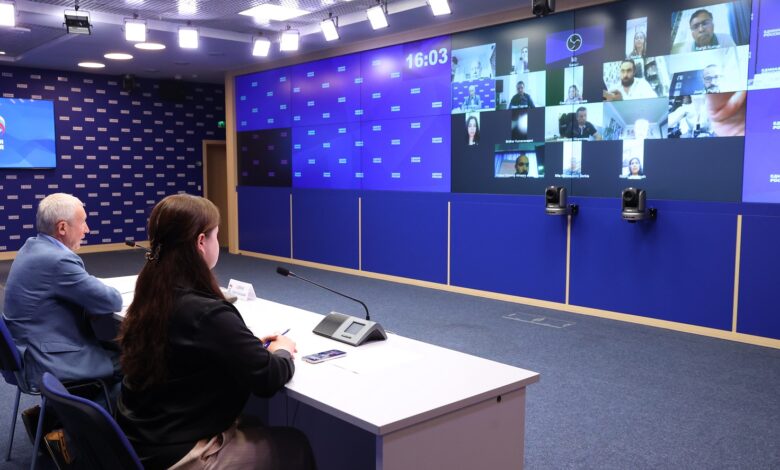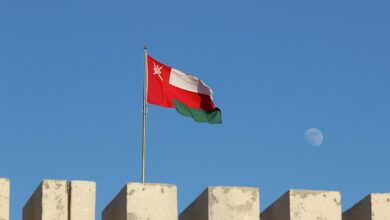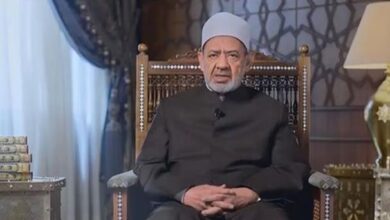
A member of the Bureau of the Supreme Council of the United Russia Party and the State Duma, Andrei Klimov said that Egypt plays a vital role in the BRICS group and praised Cairo’s key strategic relationship with Moscow.
This follows in response to a question Al-Masry Al-Youm asked Klimov during a video conference with a limited number of international journalists, regarding the role the BRICS bloc plays and and the vision of the United Russia Party.
Russia has significantly close relations with Egypt in various fields, he assured, including in politics the economy and the parliament.
Klimov expressed hope that cooperation will be further developed between the two parties.
The Russian official also spoke about the results of the joint international forum “The Time of Colonial Powers has Ended” between the BRICS parties.
The discussion revolved around the possibility of establishing a common currency for the BRICS countries, and the role of the bloc towards the North Atlantic Treaty Organization (NATO).
He further hailed the importance of the writings of Chairman of the United Russia Party and Deputy Chairman of the Security Council of the Russian Federation Dmitry Medvedev.
Questions arose about the possibility of Serbia joining the bloc, as well as Turkey, in light of the latter’s membership in NATO.
Klimov also spoke about the role of BRICS with the Shanghai Cooperation Organization, while other discussions involved the possibility of Syria joining the BRICS and what impact this would have on relations with Turkey.
According to the Russian official, the problems of the modern world dictate the need to jointly build a fairer world order, one based on equal cooperation, and assured that the BRICS bloc is open to all countries of the world.
He said that Serbia and Turkey, which seek to participate in both the BRICS and the EU, should consider what direction they want to choose.
The countries of BRICS represent 26 percent of the Earth’s area, he said, with up 42 percent of the planet’s population of 2.83 billion people, 27 percent of the global gross domestic product, about 20 percent of global trade and 25 percent of direct investment.
The international economic bloc is not invited, he added, but no one is forced or prevented from joining.
He noted that as of January 1, the BRICS group – originally made up of Brazil, Russia, India, China, and South Africa- has allowed in five new participating countries: Egypt, Argentina, Iran, the Emirates, Saudi Arabia, and Ethiopia.
However, he noted that despite its invitation being approved Argentina’s leadership refused to participate in the BRICS.
“Imagine that you are in Moscow, dreaming of visiting the Bolshoi Theater, they give you an invitation card, and you throw it away,” he said.
Regarding offering a currency to the BRICS countries, he said that the issue has not yet been considered and noted that the presence of a unified currency in the European Union has not saved the countries from problems.
The BRICS countries are still comfortable paying in their national currencies, he added, and this is a technical issue that only requires political will.
As for accepting new participants, the Russian senator said that the issue will be brought up at the October BRICS summit in Kazan, and so far nearly 50 applications for membership have been submitted.
At the same time, the various BRICS mechanisms are open to the participation of all countries, he said, and not just those officially participating in the organization.
All countries can also participate in the BRICS Bank in Shanghai, Klimov added, in many forums, round tables and movements.
The BRICS group, the “Alliance of the Global South,” he said, plays a crucial role due to the weight that its members represent in the global economy, he said.




